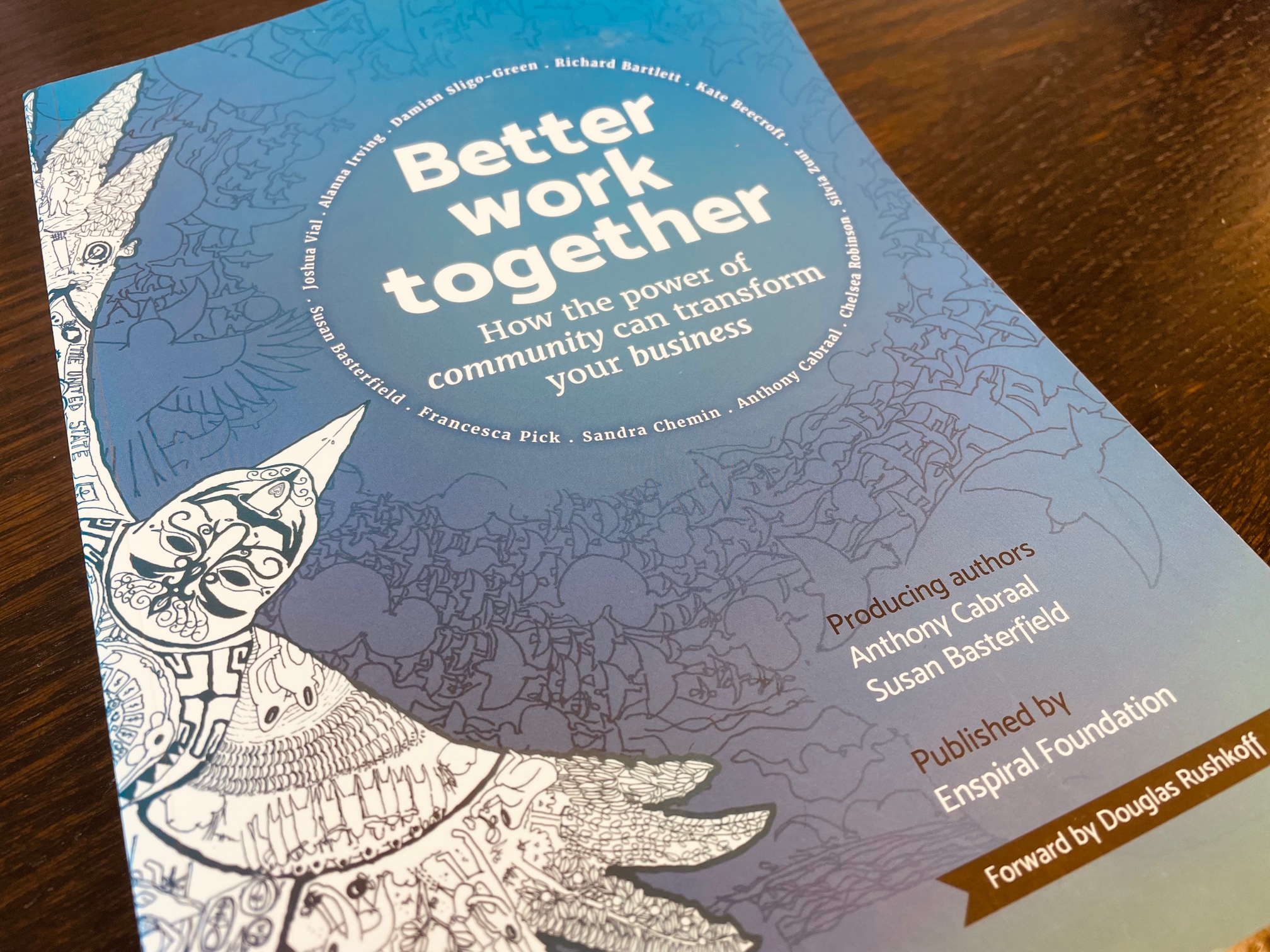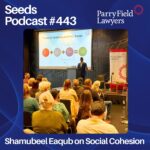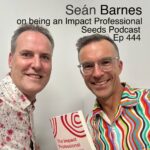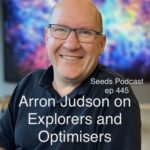An independently published New Zealand book called “Better Work Together” recently. The short summary of this review is: Go order a copy. Why? Because it’s co-authored by many local New Zealander entrepreneurs with diverse backgrounds and it really deserves to be better known as it is a quality business focused book that challenges existing paradigms of what is possible. It is packed full of wisdom based on real life experiences of these entrepreneurs who are also community builders at heart.
The subtitle is “How the power of community can transform your business”. The key theme that flows through all of it is relating how community can form around business. The context for the book is critical because it comes out of the Enspiral network which is based out of Wellington and started about 10 years ago. Each of the authors has been involved to a greater or lesser degree in that “community of entrepreneurs experimenting at the edges of ownership, governance, decision making, resource sharing and organisational design”. Elsewhere, the Enspiral community is described as “a worker owned ecology of professional services businesses”. This book is really a record of some key learnings from those who have been actively involved in that community.
You can see the impact that being involved in Enspiral has had on the journey of those who have contributed essays because they are mainly reflections on what each person has learned. There are 11 such essays that go a lot deeper than some of the other shorter resources which are included (my favourite of those being what can be learned about community from sourdough bread – with a recipe!).
The topics of the essays are wide ranging, from “Welcome to the age of participation”, “Saying yes to purpose”, “Start with I”, and “Finding the stuff that matters”. The thing that I appreciate about the perspectives shared is that the authors are very real and open about their journeys and frustrations and what they have learned along the way about how community and work can, or could, interact. While based on their experiences in Enspiral it is clear there is application beyond that community and I can see things that resonate in my own context here in Christchurch and other places I visit around Aotearoa.
To give a flavour, one essay is called “21st Century Leadership” and in that – the closing essay – Silvia Zuur talks about what she thinks leadership will look like in the future. She starts by asking “What qualities make a new leader?” and starts the essay with this answer: “The number one quality is to be curious. An innate inquisitiveness is needed to do this work. A wish to know why things are the way they are and an unwillingness to accept the status quo, or to accept the current reality as a given”. This resonates with me because in the 90 interviews I’ve done on seeds podcast I find it is that quality of being curious and asking the right question that unlocks the best responses from people. It was nice to have that idea confirmed by this essay.
Producing authors Anthony Cabraal and Susan Basterfield have woven something together that is greater than each of the individual pieces. The book is almost 300 pages long so there is a lot of content but it has been well designed so it is more than just text – there are graphics and quotes throughout as well. In addition to the essays there are multiple resources included – some are just one page while others are much longer. Topics range from “Patterns of decentralised organising”, “The open startup”, “5 threads that weave strong community fabric”, “Buzzwords: unpacked”, “Unfolding purpose: A 5 step journey” and a lot more.
No book is perfect and I would love to have understood how legal structures and the constraints of available forms have themselves impacted (or not) on community building in start-ups. For example, the differences between cooperative companies with employees who are shareholders as opposed to traditional limited liability companies with shareholders who may not even be involved the business itself. What are the pluses and minuses and what influence does the structural form chosen have on building community where you are seeking to achieve something more than just generating profits? Is there a better model that maybe hasn’t been invented yet that really empowers both impact and the development of a community among those involved and what might that look like? However, this is a small side note on an area of personal research and interest and overall the authors have created a commendable resource that deserves to be bought and studied in detail. It is really great to see that high quality content is being produced like this here in New Zealand.
The biggest challenge from the book relates back to how community can grow through business. This quote in the book perhaps captures some of the essence and the heart that is clearly standing behind why it has been written: “Happiness is when what you think, what you say, and what you do are in harmony.” Ghandi.
Better Work Together is accessible here (www.betterworktogether.co/)
By Steven Moe, Partner at Parry Field Lawyers and host of Seeds Podcast
Steven is a lawyer and Partner at Parry Field Lawyers helping those pushing boundaries of the existing paradigms of thinking and has a focus on empowering impact, he hosts the podcast seeds which has more than 260 interviews and more than 115,000 listens.





